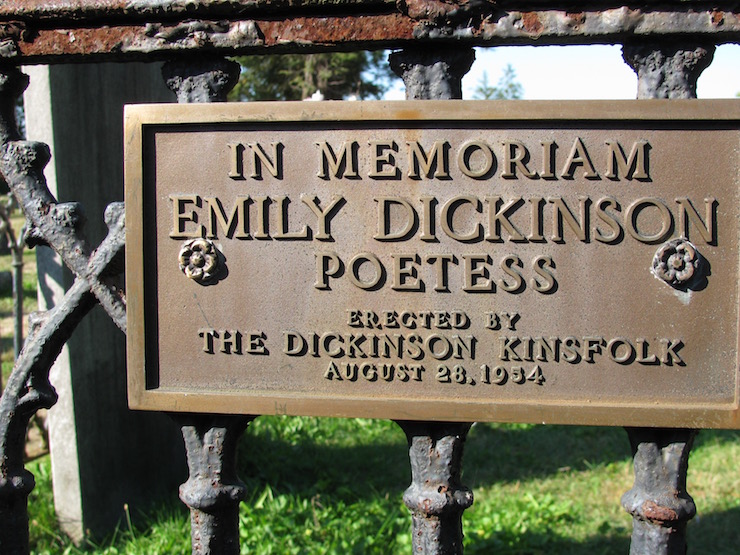< Return to Emily Dickinson Poems
XX. The Last Night That She Lived
The last night that she lived,
It was a common night,
Except the dying; this to us
Made nature different.
We noticed smallest things, —
Things overlooked before,
By this great light upon our minds
Italicized, as ‘t were.
That others could exist
While she must finish quite,
A jealousy for her arose
So nearly infinite.
We waited while she passed;
It was a narrow time,
Too jostled were our souls to speak,
At length the notice came.
She mentioned, and forgot;
Then lightly as a reed
Bent to the water, shivered scarce,
Consented, and was dead.
And we, we placed the hair,
And drew the head erect;
And then an awful leisure was,
Our faith to regulate.
-Emily Dickinson
Enjoy Artistic Representations of “The Last Night That She Lived” by Emily Dickinson
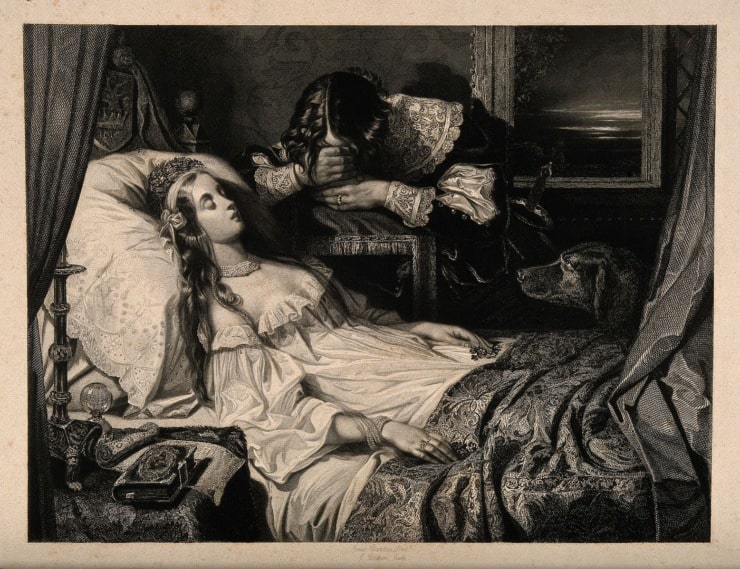
A young man weeps in grief by the death bed of a young woman by J. Brown, 1846.
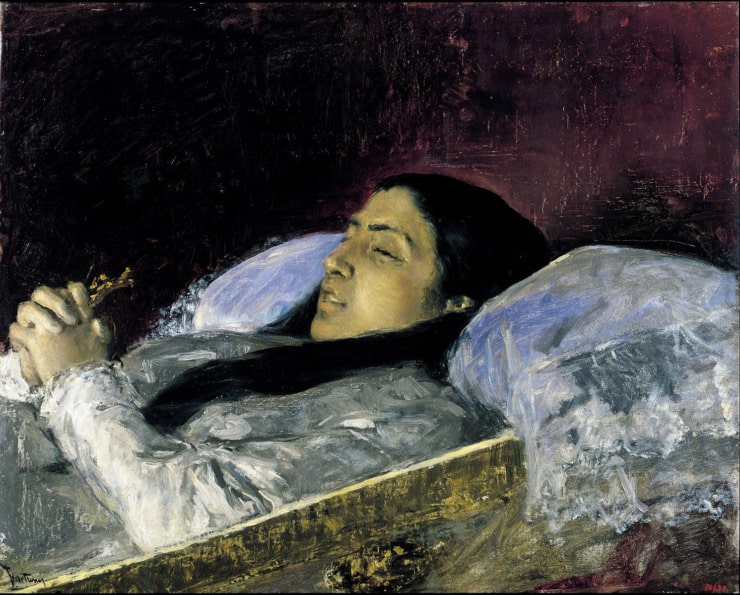
Miss Del Castillo on her Deathbed by Marià Fortuny Marsal, 1871.
Listen to these Readings of “The Last Night That She Lived”
Listen to these Musical Interpretations of “The Last Night That She Lived” by Emily Dickinson
About Emily Dickinson
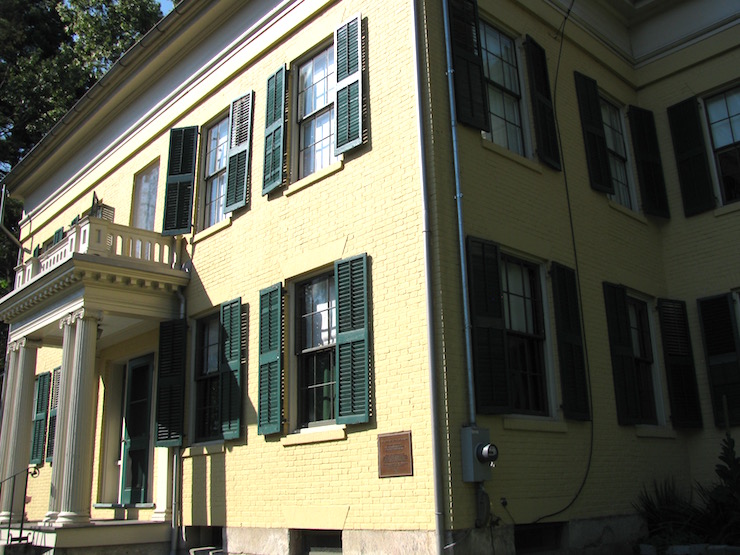
Emily Dickinson estate in Amherst Massachusetts
Emily Dickinson was born in Amherst, MA, in 1830, the daughter of state and federal politician Edward Dickinson. A prolific poet, Dickinson was known to draft poems on the backs of envelopes and chocolate wrappers. Nearly 1800 of her poems were discovered by her family following her death, many in 40 handbound volumes she had sewn together, written in her own hand with her famously unorthodox punctuation.
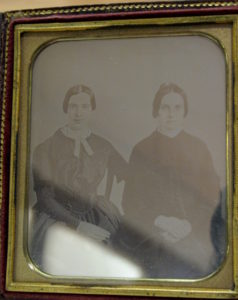
Emily Dickinson & Susan Gilbert
The enigmatic poet is remembered as a recluse, rarely leaving the Dickinson estate. While she did receive callers at her home, conversations were often held from opposite sides of a closed door.
She lived with her sister, Lavinia, while her brother Austin and his wife, Susan Gilbert, lived down a narrow path on the property. Her writing reflects profound loneliness as well as a deep capacity for love and affection, much of which is believed to have been shared with Gilbert.
Her first collection of poems, Poems by Emily Dickinson, was published four years after her death, with Poems: Second Series and Poems: Third Series following in the next several years.
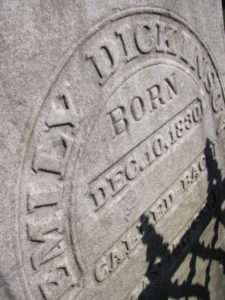
“Called Back”
Like Walt Whitman (who she reportedly never read), she is considered one of the most influential poets in the emergence of a distinctly American poetic voice.
She was born on December 10, 1830, and today visitors to Emily Dickinson’s grave can witness a lasting image of her perspective on life. The etching on her stone marking the date of her death—May 15, 1886—bears the words “Called Back.”
< Return to Emily Dickinson Poems
